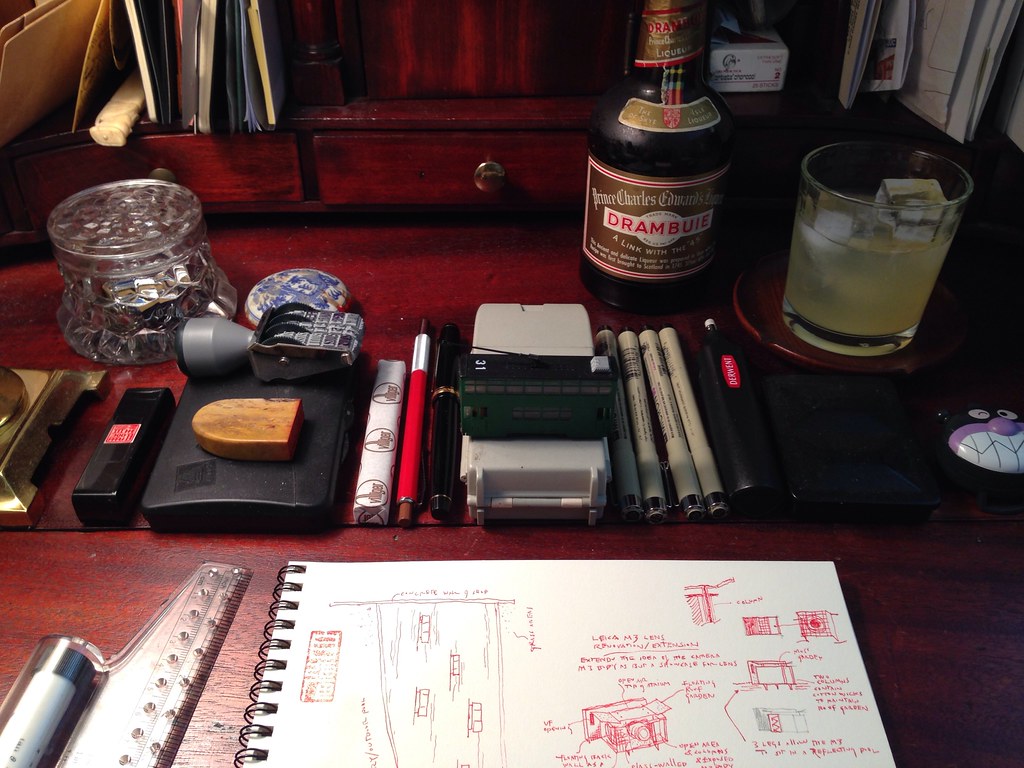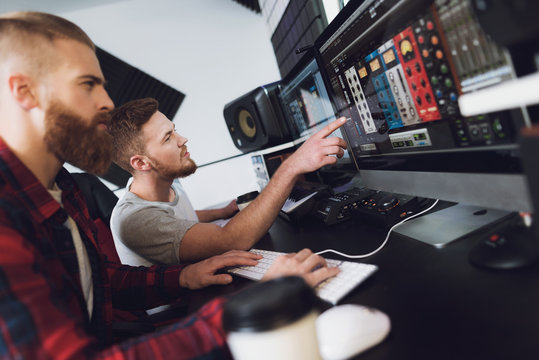Are you passionate about music but don’t know where to start when it comes to producing your own tracks? Have you been searching for an affordable way to learn music production without breaking the bank? Look no further, because we have the solution for you! In this blog post, we’ll introduce you to an online course that can teach you music production for free. Whether you’re a complete beginner or have some experience under your belt, this course has something for everyone. So why wait? Let’s dive into the world of music production and unleash your creativity!
Table of Contents

Introduction: Why You Should Learn Music Production for Free
If you have a passion for music and want to create your own tracks, learning music production is a must. With the rise of technology, it’s now easier than ever to learn music production from the comfort of your own home. The best part? You can do it for free! There are numerous online courses available that cater to beginners who want to learn the basics of music production. Not only will you gain a new skill, but you’ll also have the opportunity to unleash your creativity and produce music that reflects your unique style. In this article, we’ll explore the benefits of learning music production online and provide you with a list of the top 5 free online courses for beginners in music production. So, whether you’re an aspiring musician or just looking for a new hobby, read on to discover how you can start producing your own music today!
The Benefits of Learning Music Production Online
With the rise of free online courses, learning music production has become more accessible than ever before. Enrolling in an online course gives you the flexibility to learn at your own pace and on your own schedule. In addition, many platforms offer a wide range of courses taught by experts in the field, giving you access to valuable knowledge and experience.
Online learning also allows for interactive discussions with other students from around the world, as well as real-time feedback from instructors. The ability to practice new techniques and receive immediate feedback is essential for developing your skills.
Furthermore, learning music production online can save you money compared to a traditional educational format. Online courses often provide all necessary materials digitally, eliminating the need for expensive textbooks or classroom supplies.
Overall, taking advantage of free online courses is an excellent way to advance your music production skills while keeping within budget constraints.
Top 5 Free Online Courses for Beginners in Music Production
Top 5 Free Online Courses for Beginners in Music Production**
If you’re interested in learning music production but don’t want to spend a lot of money on courses, there are plenty of free options available online. Here are the top 5 free online courses for beginners in music production:
-
Coursera’s Introduction to Music Production: This course covers the basics of music production, including recording and mixing techniques.
-
Berklee Online’s Introduction to Music Production: This course teaches students how to use digital audio workstations (DAWs) and other software tools to create professional-quality recordings.
-
Udemy’s Music Production in Logic Pro X: This course is designed specifically for users of Apple’s Logic Pro X software and covers everything from setting up a project to mixing and mastering.
-
Skillshare’s Music Production Essentials: This course covers the fundamentals of music production, including sound design, arrangement, and mixing.
-
FutureLearn’s Introduction to Ableton Live: This course is focused on teaching students how to use Ableton Live software for music production, including recording, editing, and mixing.
By taking advantage of these free online courses, you can gain the knowledge and skills needed to start producing your own music without breaking the bank.

Understanding the Basics of Music Production: A Step-by-Step Guide
Music production can seem overwhelming for beginners, but it’s important to start with the basics. The first step is to understand the different components of a track, such as melody, harmony, rhythm, and arrangement. Once you have a grasp on these elements, you can start experimenting with different sounds and instruments.
One of the most important aspects of music production is understanding how to use a Digital Audio Workstation (DAW). There are many free DAWs available online, such as Audacity and LMMS, that are great for beginners. These programs allow you to record and edit audio, add effects and plugins, and create MIDI tracks.
Another key skill in music production is sound design. This involves creating your own unique sounds using synthesizers or other virtual instruments. You can also manipulate existing sounds by adding effects like reverb or distortion.
Remember to take your time when learning music production. It’s a complex skill that takes practice and patience to master. Don’t be afraid to experiment and try new things – that’s how some of the best music is created!

How to Set Up Your Home Studio for Music Production on a Budget
Setting up a home studio for music production doesn’t have to break the bank. With a few essential pieces of equipment, you can create professional-quality tracks in your own space. The first thing you’ll need is a computer or laptop with enough processing power and storage capacity to handle digital audio workstations (DAWs) like Ableton Live or FL Studio. You’ll also need studio headphones, as they provide more accurate sound reproduction than regular speakers. A microphone is another crucial piece of gear, especially if you plan on recording vocals or live instruments. Look for one that has good sensitivity and frequency response, but don’t feel like you have to spend thousands of dollars on it – there are plenty of affordable options out there that will get the job done just fine. Finally, consider acoustic treatment for your room – this can include things like foam panels or bass traps which help dampen unwanted sound reflections and improve overall sound quality.

Tips and Tricks for Mixing and Mastering Your Tracks
Understanding the Basics of Mixing and Mastering
Understanding the Basics of Mixing and Mastering: To achieve a polished sound in your music production, you need to understand the basics of mixing and mastering. Firstly, mixing involves balancing all the elements (such as vocals, drums, guitars) in a track to ensure they are heard clearly. It also means adding effects such as reverb or delay to create depth. Secondly, mastering is done after mixing and ensures that the final mix sounds consistent across different playback systems. This includes adjusting EQ levels, compression and limiting. By mastering these techniques with practice and experimentation using free tools like Audacity or GarageBand , you’ll be able to produce professional-sounding tracks for your audience’s listening pleasure!
Tips to Improve Your Music Production without Expensive Gear
There’s no need to break the bank when it comes to music production. With a few tips and tricks, you can improve your tracks without expensive gear. One important aspect is to focus on EQ and compression. Use EQ to cut out unwanted frequencies and boost the ones that matter. Compression can help even out the levels of your track and make it sound more polished. Another key tip is to experiment with panning and stereo imaging. By placing different elements of your track in different parts of the stereo field, you can create a more dynamic and interesting mix. Remember, it’s not about the gear you have, but how you use it.
Tricks for Achieving a Professional Sound on a Tight Budget
To achieve a professional sound in music production, it’s important to focus on mixing and mastering your tracks. Even with a tight budget, there are several tricks you can use to enhance the quality of your final product. One key tip is to use EQ (equalization) effectively by cutting unnecessary frequencies and boosting others that need emphasis. Another trick is to use compression wisely, applying just enough to control dynamics without squashing the life out of your audio. Additionally, pay attention to stereo width and panning for a fuller and wider sound image. By implementing these techniques, you can elevate the overall quality of your music productions without breaking the bank.
How to Make Your Tracks Stand Out with Proper EQ-ing Techniques
Proper EQ-ing techniques can make a huge difference in the quality of your tracks. Start by identifying the key elements of your mix and use EQ to enhance them. Cut out any unnecessary frequencies that may be causing muddiness or harshness. Boosting the right frequencies can also add clarity and definition to your tracks. Use a spectrum analyzer to visualize the frequency range of each element and adjust accordingly. Don’t be afraid to experiment with different EQ settings until you find the perfect balance. With proper EQ-ing, your tracks will sound more professional and stand out from the rest.
Exploring Different Genres in Music Production: From Hip-Hop to EDM
One of the most exciting aspects of music production is the ability to create music in a variety of genres. Whether you’re interested in hip-hop, EDM, or any other genre, there are endless possibilities for experimentation and creativity.
To get started, it’s important to listen to a wide range of music within your chosen genre. Pay attention to the instrumentation, arrangement, and production techniques used in each track. This will give you a better understanding of what makes a successful track in that genre.
Once you have a good grasp on the basics, don’t be afraid to experiment and try new things. Use different sounds and effects to create unique textures and rhythms. Collaborate with other musicians who have different perspectives and ideas.
Remember that every genre has its own set of conventions and expectations, but also room for innovation and creativity. By exploring different genres in music production, you can expand your skills and develop your own unique style.

Collaborating with Other Musicians: How to Network and Build Connections Online
Collaborating with other musicians is a great way to improve your music production skills and expand your network. One of the best ways to find potential collaborators is through online communities and forums dedicated to music production. Look for groups on social media platforms like Facebook or Reddit where you can connect with other musicians who share your interests.
When collaborating, it’s important to establish clear communication and expectations from the beginning. Set deadlines, discuss the creative direction of the project, and be open to feedback from your collaborators. Building strong relationships with other musicians can lead to future collaborations and opportunities in the industry.
Don’t be afraid to reach out to musicians you admire or respect. Send them a message introducing yourself and expressing your interest in working together. You never know where a simple message could lead.
Remember that collaboration is a two-way street. Be willing to contribute your skills and knowledge to the project, and be open to learning from others as well. With dedication and hard work, collaborating with other musicians can take your music production skills to new heights.
Troubleshooting Common Issues in Music Production and How to Fix Them
As a beginner in music production, you may encounter some common issues that can be frustrating to deal with. One of the most common issues is latency, which is the delay between when you play a note and when you hear it through your speakers or headphones. To fix this, you can adjust your buffer size or use an external audio interface.
Another issue is clipping, which occurs when the volume of your track exceeds the maximum level and causes distortion. To avoid this, make sure to monitor your levels and use compression or limiting to control the volume.
You may also encounter issues with EQ and frequency masking, where certain frequencies clash and create muddiness in your mix. To fix this, try using EQ to carve out space for each instrument and use frequency analysis tools to identify problem areas.
Lastly, if you’re experiencing crashes or glitches in your software, make sure to keep it updated and check for any conflicting plugins. By troubleshooting these common issues, you can ensure that your music production process runs smoothly and efficiently.
Conclusion: Taking Your Music Production Skills to the Next Level
Music production free online course is a great way to start your journey as a music producer. However, it’s important to remember that learning the basics is just the beginning. To take your skills to the next level, you need to continue practicing and experimenting with different techniques.
One way to do this is by collaborating with other musicians online. Joining music production communities and forums can help you connect with like-minded individuals who share your passion for music. You can also participate in online challenges and competitions to push yourself out of your comfort zone and learn new skills.
Another important aspect of improving your music production skills is staying up-to-date with the latest trends and technologies. Follow industry blogs and websites, attend webinars and workshops, and experiment with new software and hardware tools.
Remember, music production free online course is just the beginning of your journey as a music producer. With dedication, hard work, and a willingness to learn, you can take your skills to new heights and create music that truly resonates with your audience.
In conclusion, learning music production online is a great way to kickstart your passion or take your skills to the next level. With the free resources available on the internet, you can learn at your own pace and create professional-sounding tracks from home without breaking the bank. Whether you’re a beginner looking to get started or an experienced musician looking to expand your skill set, these courses offer something for everyone.
Don’t forget to check out our other content for more tips and tricks on music production! From interviews with industry professionals to product reviews and tutorials, we’ve got everything you need to become a pro. So what are you waiting for? Start learning today and unleash your creativity in music production!


